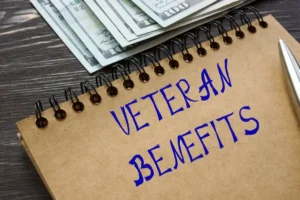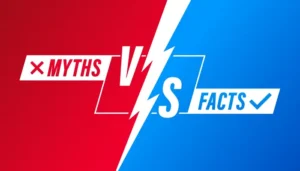The VA loan program is one of the most beneficial mortgage options available to veterans and service members.
While most information around VA loans focuses on married borrowers, it’s important to understand how the program works for non-married borrowers, whether they’re single, divorced, or looking to co-borrow with a non-spouse.
If you’re considering a VA loan under these circumstances, here’s what you need to know about the process, eligibility, and unique considerations.
Understanding VA Loans for Non-Married Borrowers
VA loans are designed to provide affordable and accessible home financing for veterans, active-duty service members, and their families.
Non-married borrowers, however, may face additional complexities, especially if they’re co-borrowing or navigating income qualifications.
Key Benefits of VA Loans:
- No down payment requirement in most cases.
- No private mortgage insurance (PMI), saving borrowers significant costs.
- Competitive interest rates compared to conventional loans.
- Easier qualification requirements, particularly regarding credit scores.
For non-married borrowers, these benefits remain intact, but there are specific considerations depending on the borrower’s status and whether they plan to co-borrow with another person.
Who Can Be a Non-Married Borrower?
- The term “non-married borrower” can refer to a variety of situations:
- Single veterans or service members purchasing a home on their own.
- Divorced veterans seeking to buy a new home post-divorce.
- Veterans co-borrowing with a non-spouse, such as a partner, relative, or friend.
- Eligible surviving spouses who have not remarried.
- While VA loans are flexible, the eligibility and approval process for non-married borrowers may involve additional steps, particularly when it comes to income, credit, and shared ownership.
Income and Credit Requirements for Single Borrowers
Single veterans or service members applying for a VA loan must meet the same income and credit requirements as married applicants. However, their single-income status might affect their debt-to-income (DTI) ratio and loan amount approval.
What Lenders Consider:
Stable Income: Your ability to show a reliable income source is critical. Veterans receiving disability payments can include that income in their calculations.
Credit Score: While the VA itself doesn’t set a minimum credit score, most lenders require at least a 620. Non-married borrowers should aim for higher scores to access better terms.
Debt-to-Income Ratio: Ideally, your DTI should not exceed 41%, though compensating factors like savings or additional income streams may offset a higher ratio.
“Even single borrowers can qualify for competitive VA loan terms as long as they maintain strong financial health. The program is highly inclusive,” says Karen Thompson, Senior Loan Specialist at Veteran Mortgage Group.
Co-Borrowing With a Non-Spouse
One of the most common scenarios for non-married borrowers is co-borrowing with someone who isn’t a spouse. While this is possible with a VA loan, it comes with unique rules.
Things to Know:
- The VA only guarantees the veteran’s portion of the loan.
- For example, if you co-borrow with a non-spouse, such as a partner or sibling, only your share of the loan is covered by the VA’s guaranty.
- Non-spouse co-borrowers must meet the lender’s income and credit requirements independently.
- The down payment requirement might apply. Unlike loans for married couples, where no down payment is typically needed, co-borrowing with a non-spouse may require a partial down payment, depending on the lender.
How Co-Borrowing Impacts VA Loan Terms
| Scenario | VA Guaranty Coverage | Down Payment Required? |
|---|---|---|
| Veteran borrowing solo | 100% | No |
| Veteran and spouse co-borrowing | 100% | No |
| Veteran and non-spouse co-borrowing | Partial | Yes (varies by lender) |
“Borrowing with a non-spouse can still be a great option, but veterans should be aware of the potential need for a down payment and ensure the co-borrower is financially prepared,” advises Greg Horton, Mortgage Consultant at American Lending Solutions.
Divorced Borrowers and VA Loan Eligibility
Divorce can complicate the VA loan process, particularly if you’re dealing with property tied to your VA benefits.
Here’s what to consider if you’re buying a home post-divorce or dealing with a previously purchased property:
- Eligibility Post-Divorce: If your ex-spouse used your VA loan entitlement for a prior property, you may need to restore your entitlement before applying for a new loan.
- Assumption of Loans: VA loans are assumable, meaning your ex-spouse can take over the mortgage if they meet the lender’s qualifications. This might free up your entitlement for future use.
- Child Support and Income: Veterans paying or receiving child support should factor this into their DTI ratio when applying for a loan.
Surviving Spouses and VA Loans
Eligible surviving spouses of service members may qualify for VA loans under specific conditions.
If you’re a non-married surviving spouse, here’s what you need to know:
- You must be the unremarried spouse of a service member who died in the line of duty or due to a service-related disability.
- Some remarried spouses may qualify if they remarried after age 57.
- Like veterans, surviving spouses can enjoy waived funding fees and no down payment requirements.
“VA loans are a lifeline for surviving spouses. The program ensures they can secure housing without financial strain,” explains Lisa Carter, Housing Advocate at Veterans Home Solutions.
Challenges for Non-Married Borrowers
While VA loans offer tremendous benefits, non-married borrowers may face specific challenges:
- Shared Ownership Complexities: If co-borrowing with a non-spouse, determining ownership shares and responsibilities can become complicated.
- Income Limits: A single income may cap the loan amount for some borrowers, especially in high-cost housing markets.
- Loan Entitlement Use: Veterans with limited remaining entitlement from previous loans may need to address their eligibility before purchasing again.
Housing Market Data for Single Borrowers
| Metric | Single Borrowers | Married Borrowers |
|---|---|---|
| Median Home Price (2023) | $375,000 | $410,000 |
| Average Loan Amount | $320,000 | $360,000 |
| Approval Rate for VA Loans | 78% | 85% |
Tips for Non-Married Borrowers
If you’re navigating the VA loan process as a non-married borrower, consider these strategies to maximize your chances of approval:
- Strengthen your credit score before applying to secure better rates.
- Explore co-borrowing with a trusted partner if additional income is needed but understand the shared responsibility.
- Work with a VA-savvy lender who understands the unique circumstances of non-married borrowers.
Frequently Asked Questions
Can I apply for a VA loan if I’m single?
Yes, single veterans and service members are eligible for VA loans as long as they meet the service and financial requirements.
Can I co-borrow with a partner who isn’t a spouse?
Yes, but the VA only guarantees the veteran’s share of the loan. Lenders may require a down payment in this case.
What happens if my ex-spouse used my VA loan entitlement?
You may need to restore your entitlement before applying for a new VA loan, especially if the previous property is still tied to your benefits.
Do VA loans cover co-borrowers with bad credit?
Co-borrowers must meet the lender’s credit requirements independently, which could impact loan approval.
Are VA loans available to surviving spouses?
Yes, eligible unremarried or remarried (under certain conditions) spouses of veterans may qualify for VA loans.
Can a VA loan be used for investment properties?
No, VA loans are strictly for primary residences. Non-married borrowers must meet the occupancy requirements.
Do VA loans require a down payment for non-spouse co-borrowers?
In many cases, yes. The down payment requirement depends on the lender and the VA’s guaranty coverage.
How does income affect VA loan approval for single borrowers?
Single-income borrowers must meet the DTI ratio and income stability requirements to qualify for a VA loan.


















